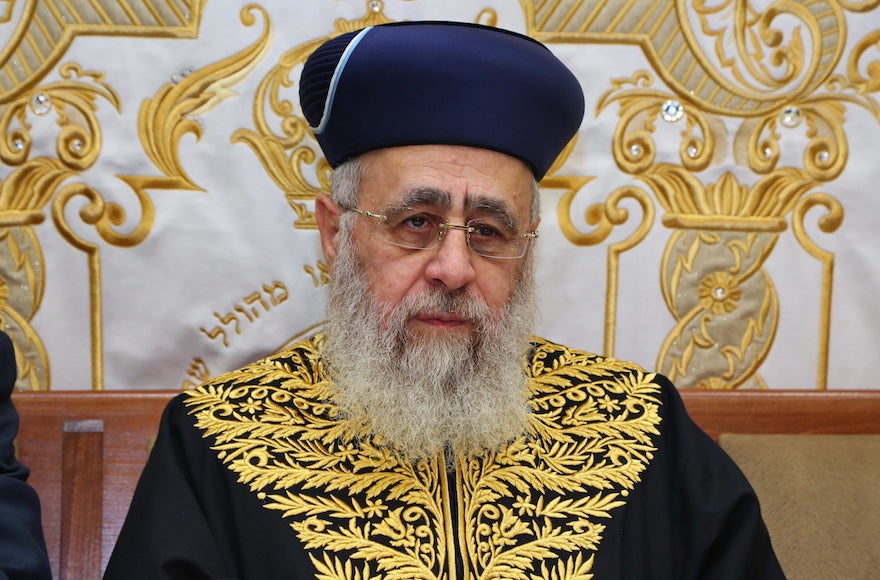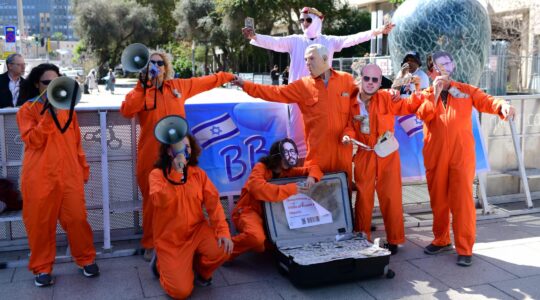JERUSALEM (JTA) — Israel’s Sephardic Chief Rabbi Yitzhak Yosef said in his weekly address that he is opposed to a bill that would allow the death penalty for terrorists.
Yosef said he was concerned about a Jewish terrorist receiving a death sentence, and referred specifically to the Jewish extremists who firebombed a Palestinian home in the West Bank village of Duma, killing three people including an infant.
“He’ll need to get a death penalty verdict, he’ll deserve to die, but to die by the hands of heaven; he should get sick or be in a car crash,” Yosef said during his Saturday night lecture, Hadashot news reported.
“We are not the Sanhedrin (the biblical Jewish court). If there was a situation of a Jewish terrorist, killing them would be against Jewish law. This has nothing to do with the right and the left, it has to do with judgment.”
Yosef also pointed out that security officials have expressed opposition to the legislation, saying that it could lead to the kidnapping of Jews around the world, who would then be used to exchange for terrorists on death row.
The legislation is backed by the Sephardic Orthodox Shas party, which was started by Yosef’s late father, Rabbi Ovadia Yosef.
The bill has passed a preliminary Knesset reading, but must still pass two further readings to become law.
Under the measure, a simple majority of judges, two in a panel of three, would be enough to sentence a terrorist to death. The bill also bans leniency after a final death sentence has been handed down.
Currently, a military court can impose the death penalty on a convicted terrorist only if the decision of the panel of judges is unanimous. It has never been employed.
The death penalty has been used in Israel once, in 1962 against Nazi leader Adolf Eichmann.
JTA has documented Jewish history in real-time for over a century. Keep our journalism strong by joining us in supporting independent, award-winning reporting.






